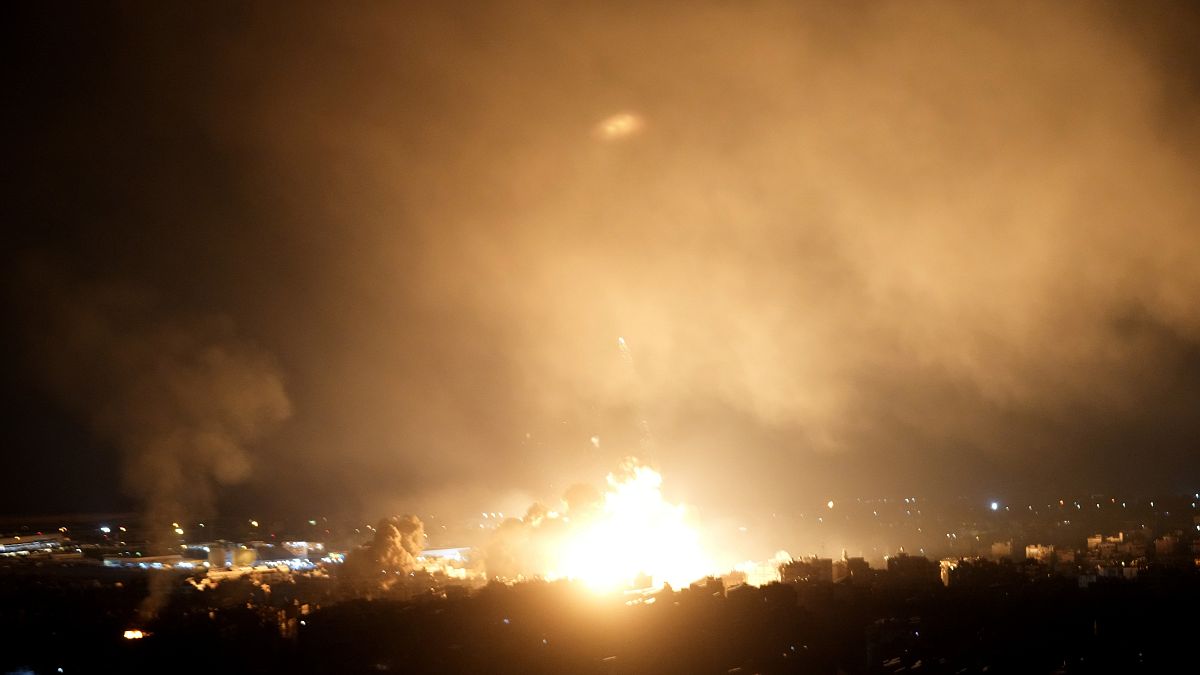The conflict between Israel and Hezbollah has escalated in recent days, leading to fears of a wider regional war in the Middle East. The Israeli military has issued warnings to evacuate communities in southern Lebanon, indicating a possible expansion of their ground operation against the militant group. Massive explosions were reported in the capital city of Beirut, with Israel targeting over 200 Hezbollah sites across Lebanon. At least nine Israeli soldiers have been killed in clashes, and nearly 1.2 million people have been displaced in Lebanon as a result of the fighting.
The situation in Lebanon has reached a critical point, with the World Health Organization reporting 28 health workers killed in a single day. Multiple health facilities have been destroyed or evacuated, severely limiting medical services for the injured. The Lebanese health minister condemned Israeli strikes on hospitals and health care centers, calling it a violation of international law. The Lebanese Red Cross reported that Israeli strikes wounded paramedics and killed a Lebanese army soldier during an evacuation mission, despite coordinating movements with UN peacekeepers. The conflict has resulted in nearly 2,000 fatalities and over 9,000 injuries in Lebanon over the past year.
Israel’s Chief of Staff, Lt. Gen. Herzi Halevi, stated that Israeli forces are eliminating Hezbollah commanders and terrorists in Lebanon. Despite facing significant casualties, he emphasized the readiness and experience of Israeli forces in the conflict. Israel has been responding to the continued rocket attacks by Hezbollah, which began almost a year ago and have led to the displacement of thousands of Israelis living in northern communities. The ongoing retaliation between the two sides has caused widespread destruction and loss of life on both sides of the border.
The fighting between Israel and Hezbollah has raised concerns of a wider conflict involving other countries in the region. Israel’s response to an alleged Iranian missile attack has escalated tensions further, with both sides suffering casualties and massive destruction. The conflict has disrupted the lives of millions of people in Lebanon, leading to a humanitarian crisis as health facilities struggle to cope with the influx of casualties. The involvement of international organizations like the World Health Organization highlights the severity of the situation and the urgent need for assistance to address the escalating crisis.
The Israeli military’s actions in Lebanon have drawn condemnation from Lebanese officials and international observers, who have criticized the targeting of hospitals and medical personnel. The violation of international law and treaties in targeting civilian infrastructure has raised questions about the legality of Israel’s military operations. The Lebanese government has called for accountability and justice for the victims of the conflict, urging the international community to intervene and prevent further bloodshed. The disproportionate use of force and disregard for civilian lives by both sides in the conflict have exacerbated tensions and hindered efforts to achieve a peaceful resolution.
As the conflict continues to escalate in Lebanon, the urgent need for a ceasefire and diplomatic resolution is crucial to prevent further loss of life and destruction. The involvement of regional powers and international actors in mediating a peaceful settlement is essential to de-escalate tensions and prevent a wider regional war. The humanitarian crisis unfolding in Lebanon underscores the need for immediate humanitarian assistance to address the basic needs of those affected by the conflict. The indiscriminate targeting of civilians and critical infrastructure must stop to prevent further suffering and pave the way for a sustainable peace agreement to end the cycle of violence in the region.











